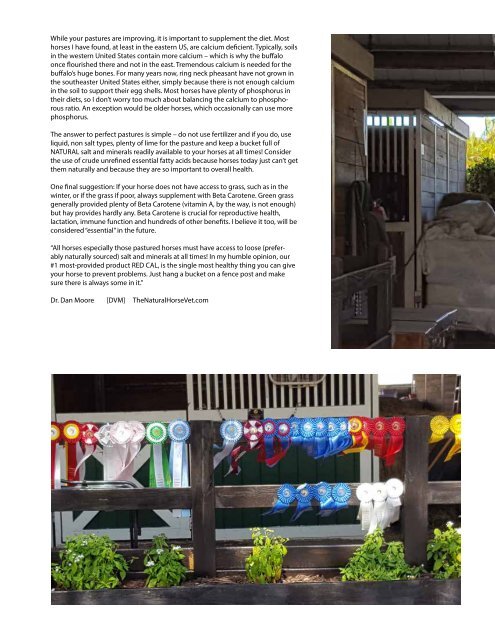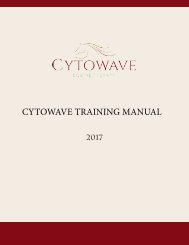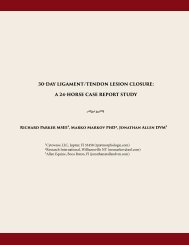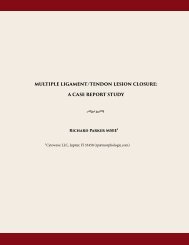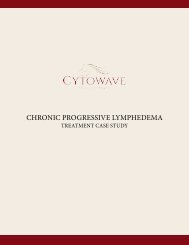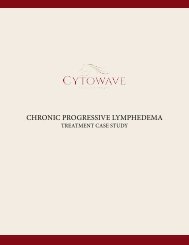Wellington Equestrian cover Feb - March
You also want an ePaper? Increase the reach of your titles
YUMPU automatically turns print PDFs into web optimized ePapers that Google loves.
While your pastures are improving, it is important to supplement the diet. Most<br />
horses I have found, at least in the eastern US, are calcium deficient. Typically, soils<br />
in the western United States contain more calcium – which is why the buffalo<br />
once flourished there and not in the east. Tremendous calcium is needed for the<br />
buffalo’s huge bones. For many years now, ring neck pheasant have not grown in<br />
the southeaster United States either, simply because there is not enough calcium<br />
in the soil to support their egg shells. Most horses have plenty of phosphorus in<br />
their diets, so I don’t worry too much about balancing the calcium to phosphorous<br />
ratio. An exception would be older horses, which occasionally can use more<br />
phosphorus.<br />
The answer to perfect pastures is simple – do not use fertilizer and if you do, use<br />
liquid, non salt types, plenty of lime for the pasture and keep a bucket full of<br />
NATURAL salt and minerals readily available to your horses at all times! Consider<br />
the use of crude unrefined essential fatty acids because horses today just can’t get<br />
them naturally and because they are so important to overall health.<br />
One final suggestion: If your horse does not have access to grass, such as in the<br />
winter, or if the grass if poor, always supplement with Beta Carotene. Green grass<br />
generally provided plenty of Beta Carotene (vitamin A, by the way, is not enough)<br />
but hay provides hardly any. Beta Carotene is crucial for reproductive health,<br />
lactation, immune function and hundreds of other benefits. I believe it too, will be<br />
considered “essential” in the future.<br />
“All horses especially those pastured horses must have access to loose (preferably<br />
naturally sourced) salt and minerals at all times! In my humble opinion, our<br />
#1 most-provided product RED CAL, is the single most healthy thing you can give<br />
your horse to prevent problems. Just hang a bucket on a fence post and make<br />
sure there is always some in it.”<br />
Dr. Dan Moore [DVM] TheNaturalHorseVet.com


